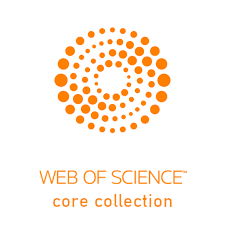A study on the creation, transfer and governance of knowledge through professional stricto sensu programs in administration
DOI:
https://doi.org/10.22478/ufpb.2238-104X.2024v14n2.70570Keywords:
Governance, Knowledge, Innovation, Research, ArtefactAbstract
Purpose: To demonstrate the importance of stricto sensu graduate programs in administration in the professional modality, in Higher Education Institutions in Brazil, which are concerned with research and its respective knowledge production. The objective possibility of generating products (artifacts) represents the materialization of knowledge, thus contributing to the development of society. Methodology: The study methodology opted for an approach focused on theoretical analysis and bibliographic research, considering the current moment of scientific production in the country. The relevance of this work lies in the fact that the new evaluation model for stricto sensu graduate courses in Brazil points to the need to prove the social impact of the programs, which should demand new methodological, theoretical and practical approaches in dealing with this issue. Main Results: As a contribution to management, the importance of this theme for organizations and the benefits that could come from it for the benefit of society are discussed, through the generation of positive impacts in its application resulting from the production of artifacts resulting from stricto sensu programs in administration in the professional modality. and its. Academic and practical contributions: The main results point to the possibilities of creating and governing knowledge resulting from the interaction between higher education institutions and organizations.
Downloads
References
Baêta, A. M., & Vasconcelos, R, M. (2003). A transferência e o compartilhamento do conhecimento em uma empresa incubada. Revista de Administração Pública, 37(6), 1197-1207.
Barbieri, J. C. (2014). Organizações inovadoras: estudos e casos brasileiros. Rio de Janeiro: FGV.
Barros, K. S. (2011). Réplica 1 – o que é um ensaio? Revista de Administração Contemporânea, 15(2), 333-337. http://dx.doi.org/10.1590/S1415-65552011000200011
CAPES - Coordenação de Aperfeiçoamento de Pessoal de Nível Superior (Brasil). (2016). Requisitos para a Apresentação de Propostas de Cursos Novos (APCN). Recuperado de: https://www.gov.br/pt-br/servicos/obter-autorizacao-abertura-novos-cursos-pos-graduacao-stricto-sensu-mestrado-doutorado-brasil-apcn. Acesso 30 out 2024.
Costa, F. J., Machado, M. A. V., & Câmara, S. F. (2022). Por uma orientação ao impacto societal da pós-graduação em Administração no Brasil. Cadernos EBAPE.BR, 20(6), 823–835. https://doi.org/10.1590/1679-395120210222
Davenport, T. H., & Prusak, L. (1998). Working Knowledge. Boston: Havard Business School Press.
Diniz, D. M., Cruz, M. A., & Corrêa, V. S. (2018). Fatores Críticos da Transferência de Conhecimento entre Universidade e Empresa (U-E). Revista Eletrônica de Administração, 24(2), 230-252. http://dx.doi.org/10.1590/1413-2311.210.83919
Drucker, P. (1998). Administrando para obter resultados. São Paulo: Pioneira.
Figueiredo, F., Ferreira, J., Marques, C., & Vieira, J., Neto. (2014). A Dimensão Conceitual da Transferência de Conhecimento como Fator-Chave para a Inovação. Revista Eletrônica de Administração e Ciências Contábeis, 43, 1-24. http://dx.doi.org/10.22409/sbijounal2014.i43.a10227
Foss, N. J. (2007). The emerging knowledge governance approach: Challenges and Characteristics. Organization Science, 14(1), 29-52. https://doi.org/10.1177/1350508407071859
Gonzalez, R. D., & Martins, M. F. (2017). O Processo de Gestão do Conhecimento: uma pesquisa teórico-conceitual. Gestão & Produção, 24(2), 248-65. http://dx.doi.org/10.1590/0104-530x0893-15
Hendricks, L. A. (1999). Taxation and Long-Run Growth [Staff General Research Papers Archive 11933]. Department of Economics, Iowa State University.
Herzmann, N., Jr., Dutra, A., & Chaves, L. C. (2020). Avaliação de Programas de Mestrado e Doutorado Profissionais no Brasil: Revisão da Literatura Internacional. Revista FSA, 17(11), 2-29.
Hunt, S., & Shuttleworth, G. (1997). Competition and choice in electricity. England: John Wiley & Sons.
Leonard-Barton, D. (1998). Nascentes do Saber: Criando e sustentando as fontes de inovação. Rio de Janeiro: FGV.
Marques, F. (2019). Avaliação em 5 Dimensões. Pesquisa Fapesp, 286, 28-31.
Martins, O. S. (2023). Pesquisa de impacto: teoria e prática no mundo corporativo. Revista de Administração Contemporânea, 27(3), 1–6. https://doi.org/10.1590/1982-7849rac2023230077.por
Nonaka, I., & Takeuchi, H. (1995). The Knowledge-Creating Company: How Japanese Companies Create the Dynamics of Innovation. Oxford: Oxford University Press.
Nooteboom, B. (2000). Learning by interaction: Absorptive capacity, cognitive distance and governance. Journal of Management and Governance, 4, 69–92. http://dx.doi.org/10.1023/A:1009941416749
Oliveira, M. M., Jr. (2018). O futuro dos programas de pós-graduação em Administração: novas escolhas e novos caminhos. Revista de Administração de Empresas, 58(1), 87–90. https://doi.org/10.1590/S0034-759020180108
Pereira, S. (2016). Cultura da Inovação. Cadernos da inovação, 23, 1-12.
Rangel, R. R. (1992). Desarticulação entre os setores produtivo e educacional e o gap tecnológico. Archetypon, 1, 43-57.
Riul, M., Fernandes de Medeiro, C., Barbosa, A., & Santos, M. C dos. (2015). Design espontâneo e Hibridismos: Artefatos da cidade e artefatos do interior. Revista Estudos em Design, 23(2), 59–74. https://doi.org/10.35522/eed.v23i2.233
Rosini, A. M., Rangel, R. R., Santos, F. A., & Tonon, D. H. P. (2016). Ensaio sobre governança por mix de coordenação como solução de restrições de mercado. Refas: Revista Fatec Sul, 2, 47-61.
Tonet, H., & Torres da Paz, M. G. (2006). Um modelo para o compartilhamento de conhecimento no trabalho. Revista de Administração Contemporânea, 10(2), 75-94. http://dx.doi.org/10.1590/S1415-65552006000200005








